Our client was a large cattle station in the remote northwest with a need for solar-powered water pumping systems at each of their stock water bores.
The client had been using diesel motor-powered line shaft pumps to draw water from old stock bores. These bores were in need of maintenance, and the client wanted to replace their pumps with solar pumping systems.
Our expert install team travelled to the station to carry out pump testing services and install Lorentz solar pumping systems to 15 old stock water bores that had previously been running line shaft pumps with diesel motors.
We were away from home for approximately 4 weeks with several thousand kilometres being covered at the station. We constructed the solar panel arrays with 8 to 16-panels with legs concreted into the ground. Flow rates varied from bore to bore but generally between 4,000L/hr to 14,000L/hr with pumping heads ranging from 10m to 120m.
The project was a great success with all 15 bores being operational by the end of May.
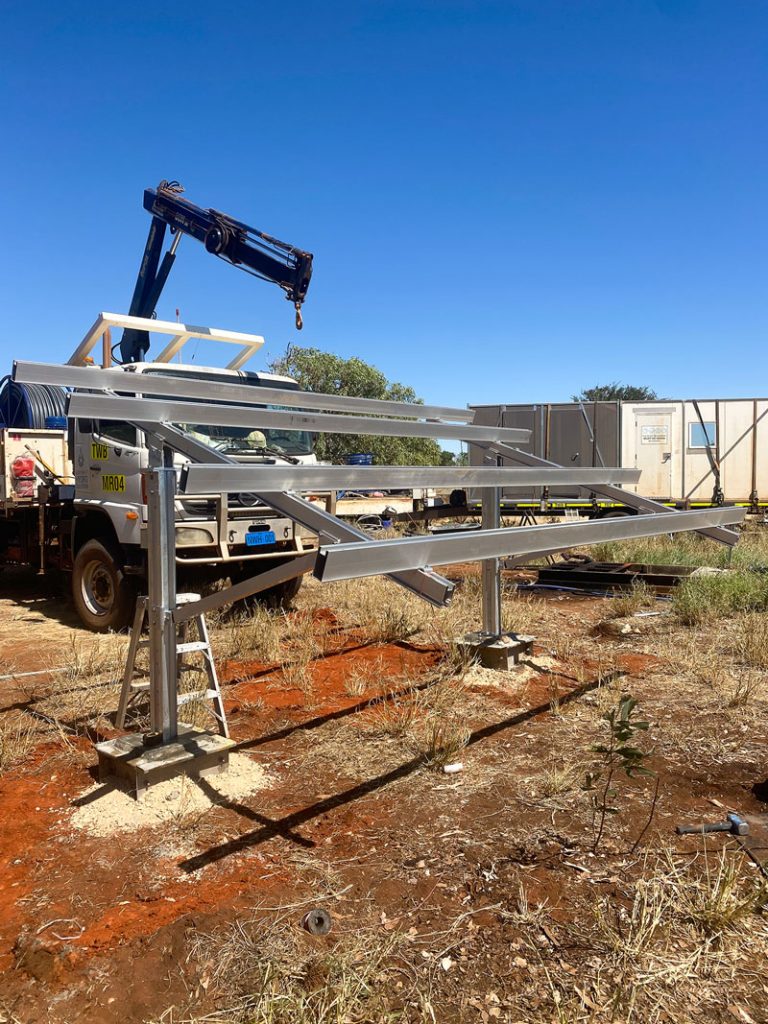
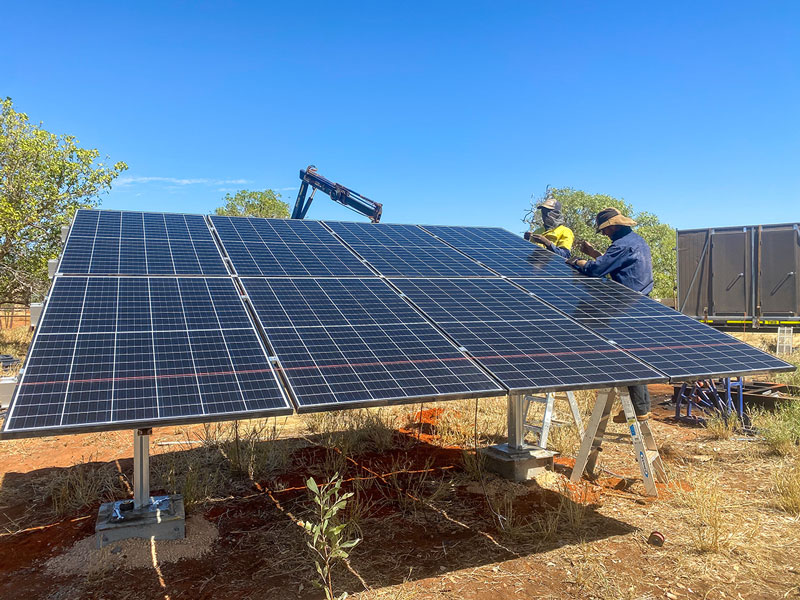
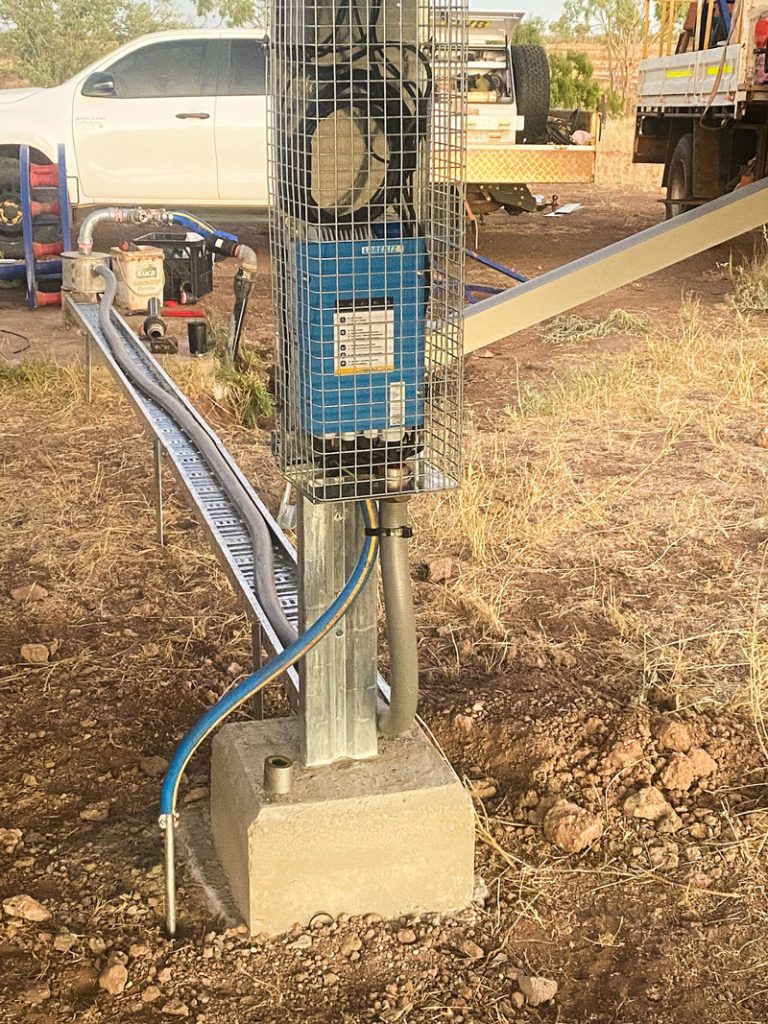
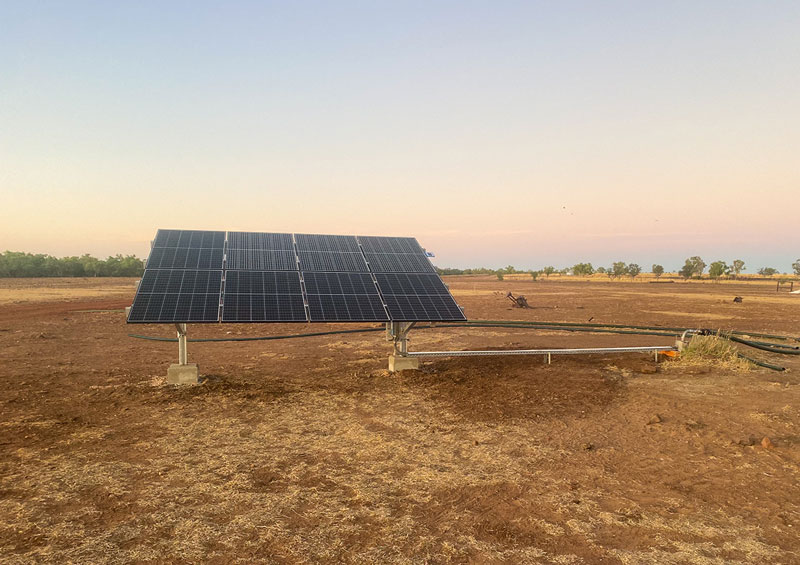
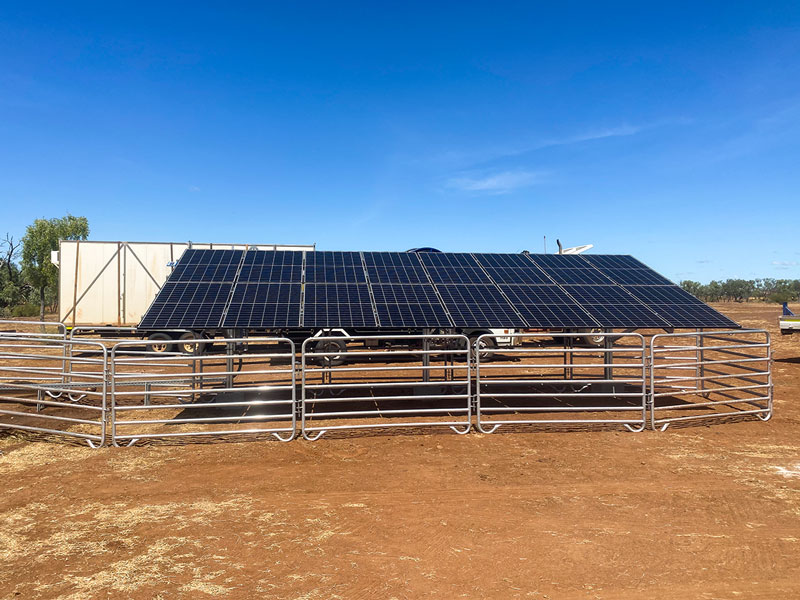
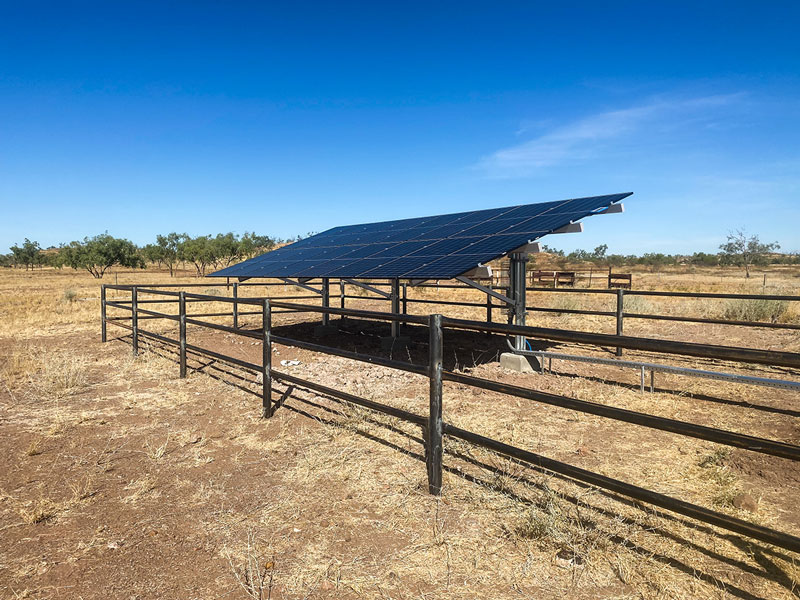
The Indigenous Land and Sea Corporation (ILSC) assists Aboriginal people and Torres Strait Islander people with the management of land for agriculture business, such as cattle stations throughout Australia.
The ILSC contracted Think Water Broome to design and install stock watering infrastructure upgrades on Windidda Station. They also received a unique request to provide training to the station hands in the following areas:
The station is very remote. Located 200km east of Wiluna, some 1500+ km from Broome. Due to the remoteness of the station, a site inspection was not practical. Our team was provided with photos, measurements, and bore information to determine the upgrade requirements to five stock watering points on the station.
It was determined that each of the 5 water points required the following upgrades:
With our vehicles fully loaded with supplies, it took 2 days to travel to the site and then 10 days to complete the installation at all 5 stock watering points. With Patrick training the Station Hands at the same time the team had many eager helping hands to get the job done, especially with site clearing and erecting the solar panel arrays.
Due to the remoteness of this project, careful planning and coordination were required. From ordering the supplies to preparing food to help fuel our install team onsite, the results were well worth it. The ILSC and Windidda Station Community members are pleased with the installation and now have reliable and efficient water infrastructures in place for their cattle.
